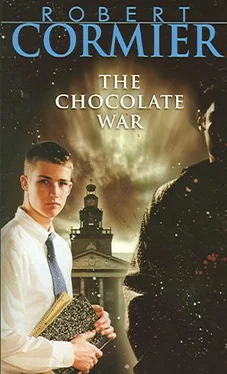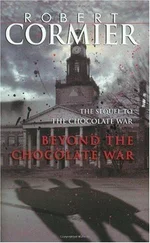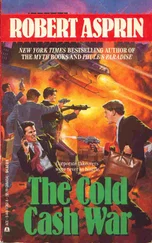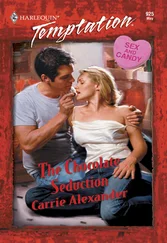She was a sweet girl who loved him for himself alone. She walked along the sidewalk with him, her breast brushing his arm; setting him on fire. The first time she rubbed against him he thought it was an accident and he pulled away, apologetic, leaving a space between them. Then she brushed against him again — that was the night he'd bought her the earrings — and he knew it wasn't an accident. He'd felt himself hardening and was suddenly ashamed and embarrassed and deliriously happy all at the same time. Him — Tubs Casper, forty pounds overweight which his father never let him forget. Him — with this beautiful girl's breast pushed against him, not beautiful the way his mother thought a girl was beautiful but beautiful in a ripe wild way, faded blue jeans hugging, her hips, those beautiful breasts bouncing under her jersey. She was only fourteen and he was barely fifteen but they were in love, love dammit, and it was only money that kept them apart, money to take the bus to her house because she lived on the other side of town and they'd made plans to meet tomorrow, her birthday, at Monument Park, a picnic sort of, she'd bring the sandwiches and he'd bring the bracelet — he knew the delights that awaited him but he also knew deep down inside that the bracelet was more important than anything else…
All of which rushed him along now, out of breath and out of shape, trying to raise money that he knew dimly would lead him eventually only to trouble. Where would he raise enough money to pay it all back when the returns were due at school? But what the hell — he'd worry about it later. Right now he needed to raise the money and Rita loved him — tomorrow, she'd probably let him get under her sweater.
He rang the doorbell of a rich-looking house on Sterns Avenue and prepared his most innocent and sweetest smile for whoever opened the door.
* * *
The woman's hair was damp and askew, and a little kid, maybe two or three years old, was tugging at her skirt. "Chocolates?" she asked, laughing bitterly as if Paul Consalvo had suggested the most absurd thing in the world. "You want me to buy chocolates?"
The baby, wearing a soggy-looking droopy diaper, was calling, "Mommy… mommy…" And another kid was howling somewhere in the apartment.
"It's for a good cause," Paul said. "Trinity School!"
Paul's nose wrinkled at the smell of pee.
"Jesus," the woman said. "Chocolates!"
"Mommee… mommee…" the kid squalled.
Paul felt sorry for older people, stuck in their houses and tenements with kids to take care of and housework to do. He thought of his own parents and their useless lives — his father collapsing into his nap every night after supper and his mother looking tired and dragged-out all the time. What the hell were they living for? He couldn't wait to get out of the house. "Where're you going all the time?" his mother asked as he fled the place. How could he tell her that he hated the house, that his mother and father were dead and didn't know it, that if it wasn't for television the place would be like a tomb. He couldn't say that because he really loved them and if the house caught fire in the middle of the night he'd rescue them, he'd be willing to sacrifice his own life for them. But, jeez, it was so boring, so deadly at home — what did they have to live for? They were too old for sea even, although Paul turned away from the thought. He couldn't believe that his mother and father ever actually…
"Sorry," the woman said, shutting the door in his face, still shaking her head in wonder at his sales pitch.
Paul stood in the doorway, wondering what to do. He'd had rotten luck this afternoon, hadn't sold a single box. He hated selling them anyway, although it gave him an excuse to get out of the house. But he couldn't really put his heart in it. He was just going through the motions.
Outside the apartment house, Paul considered his choices: pressing on with the sale despite his luck today or going home. He crossed the street and rang the doorbell of another apartment building. In an apartment house, you could knock off five or six families at one time even though the places all seemed to smell of pee.
* * *
Brother Leon had "volunteered" Brian Cochran for the position of Treasures of the Chocolate Sale. Which meant that he'd looked around the classroom, pinned those watery eyes on Brian, pointed his finger and, voilб , as Brother Aimй said in French class, Brian was treasurer. He hated the job because he lived in fear of Brother Leon. You never knew about Leon. Brian was a senior and he'd had Leon as either a classroom teacher or as homeroom supervisor for four years and he was still uncomfortable in his presence. The teacher was unpredictable and yet predictable at the same time, which reasoning confused Brian because he wasn't exactly a hotshot in the psychology department. It was this: you knew that Leon would always do the unexpected — wasn't that being both predictable and unpredictable? He loved to toss surprise exams at a class — and he also could suddenly be the nice guy, not giving a test for weeks or giving a test and then throwing away the results. Or concocting a pass-fail test — he was famous for that type — where he threaded together questions that could throw a guy for a loss, with what seemed like a million possible answers. He was also quite a man with the pointer although he usually confined that kind of stuff to freshmen. If he ever pulled the pointer antics with, say, somebody like Carter, there'd be hell to pay. But not everybody was John Carter, president of The Vigils, All-Star Guard on the football team, and president of the Boxing Club. How Brian Cochran would love to be like John Carter, with muscles instead of glasses, quick with boxing gloves instead of figures.
Speaking of figures, Brian Cochran began double-checking the sales totals. As usual, there was a discrepancy between the amount of chocolates reported as sold and the actual money received. The guys were notorious for holding back some of the money until the last minute. Ordinarily, nobody got excited about it — it was human nature. A lot of the guys sold chocolates, spent the money on a big date or a big night, and then put in the money when they got their allowance or their pay at their part-time jobs. But this year, Brother Leon acted as if every dollar was a matter of life and death. In fact, he was driving Brian Cochran up a wall.
The job of treasurer called for Brian to check every homeroom at the end of the day and write down the returns the boys had reported. How many boxes sold. How much. money turned in. Brian then went to Brother Leon's office and totaled all the figures. Then Brother Leon would come along and check Brian's report. Simple, right? Wrong. The way Brother Leon was carrying on this year made every day's report seem like a major headline event. Brain had never seen the Brother so edgy, so nervous. At first he'd gotten a kick out of the teacher's apprehension, the way the sweat poured off him like he had a special pump inside producing all that perspiration. When he came into the office and took off the black suit coat he was required to wear in the classroom during all seasons, sweat stains darkened his armpits, and he smelled as if he'd just gone ten rounds in the ring. He fidgeted and fussed around, double-checking Brian's figures, chewing on a pencil, pacing the floor.
Today, Brian was more puzzled than ever. Leon had passed around a report to all the homerooms listing total sales thus far at 4,582. Which was wrong. The kids had sold exactly 3,961 boxes and had made returns on 2,871. Sales were definitely lagging behind last year and so was the money. He couldn't understand why Leon had issued a false report. Did he think he could hype them up that way?
Brian shrugged, tabulating his own totals once more to be sure that Brother Leon wouldn't blame him for any discrepancies. He'd hate to have Leon for an enemy, which is one reason he'd accepted the job of treasurer without making waves. Brian was a member of Leon's algebra class and he didn't want to take any chances with extra homework or sudden unexplained F 's on exams.
Читать дальше












